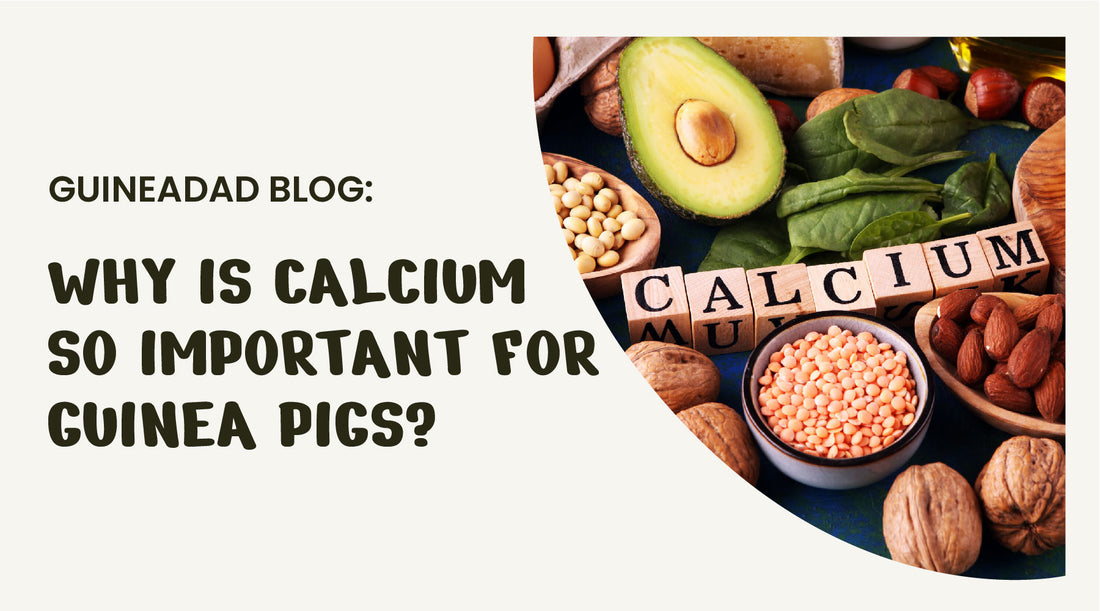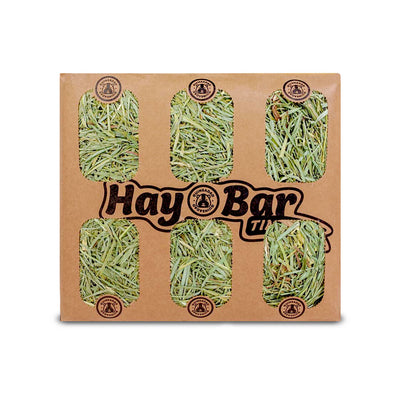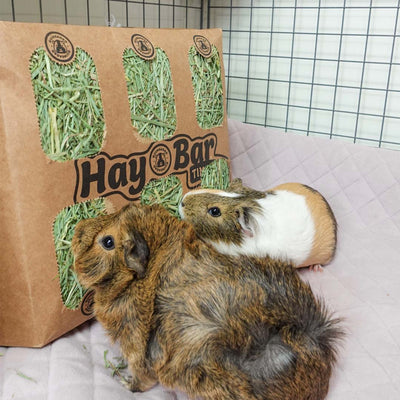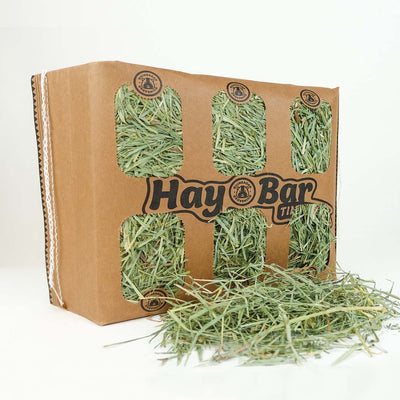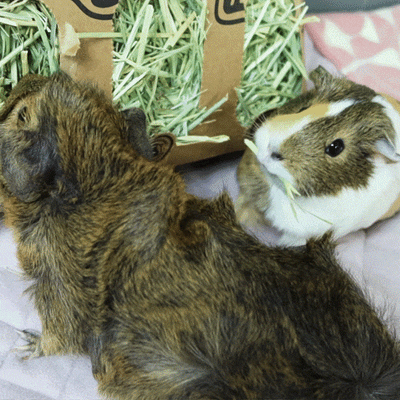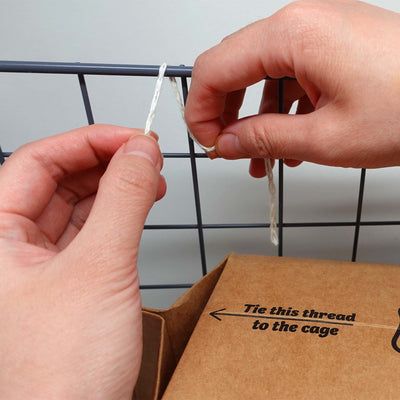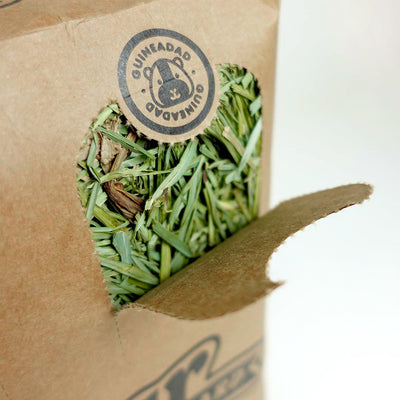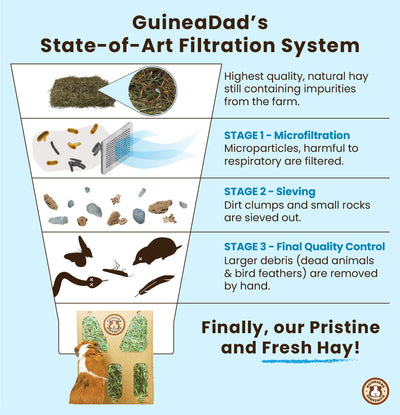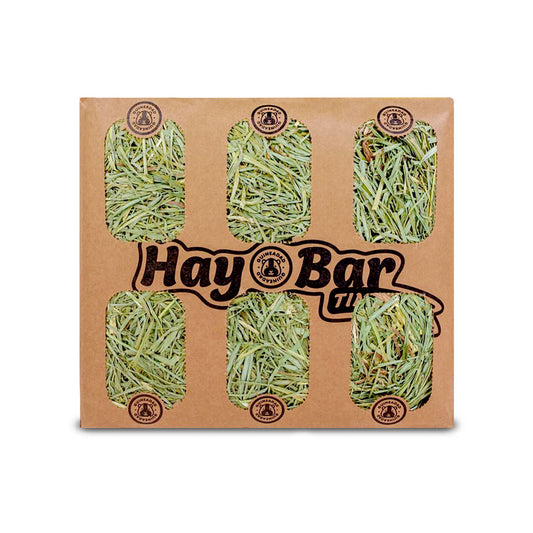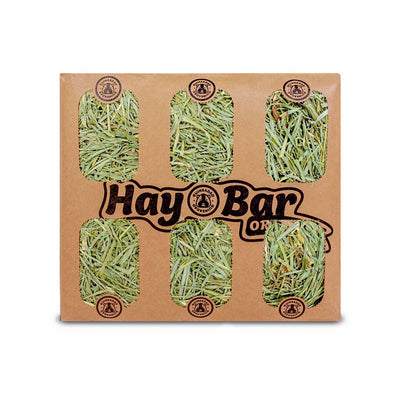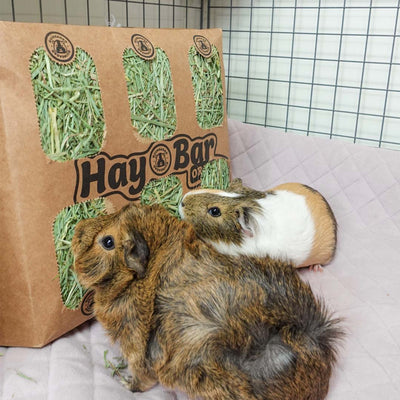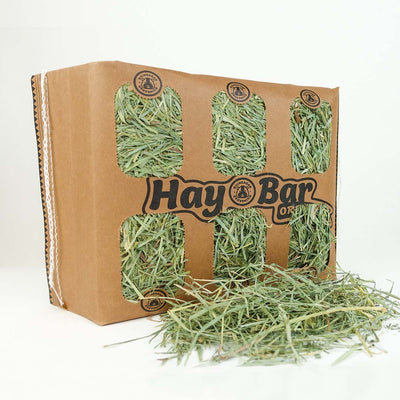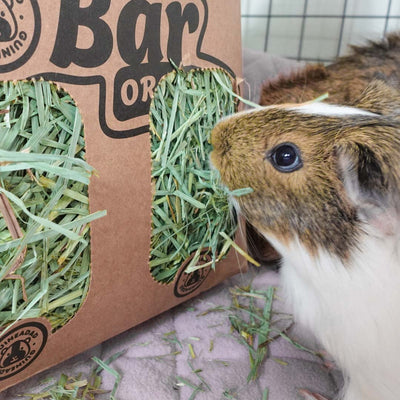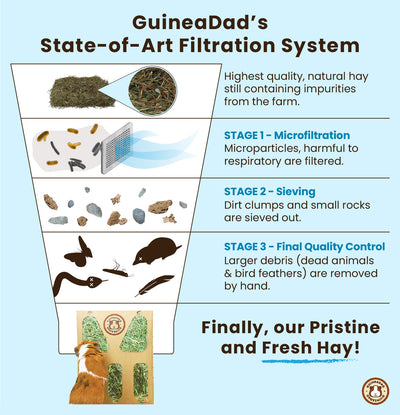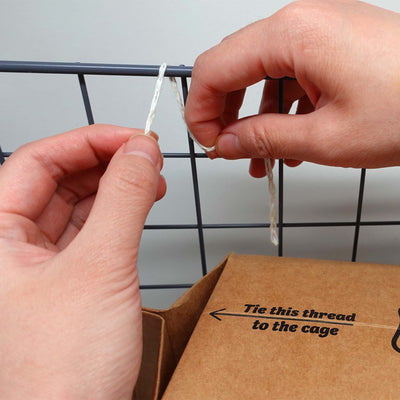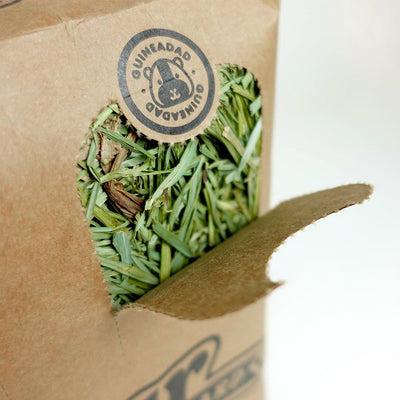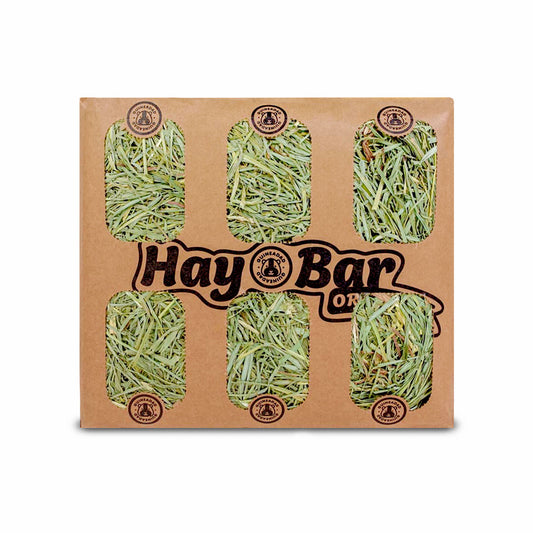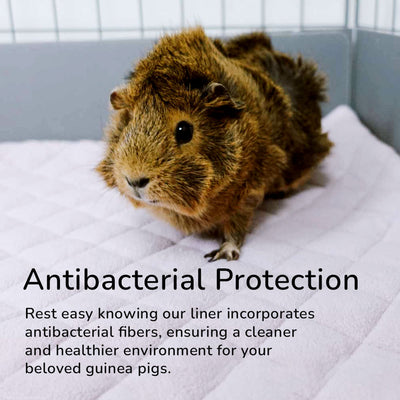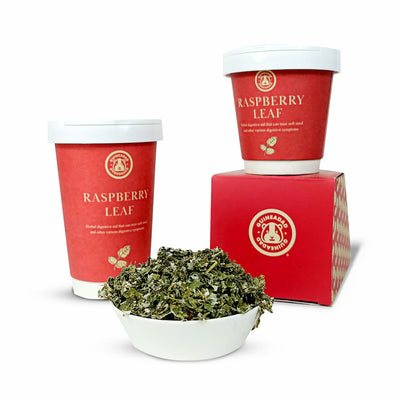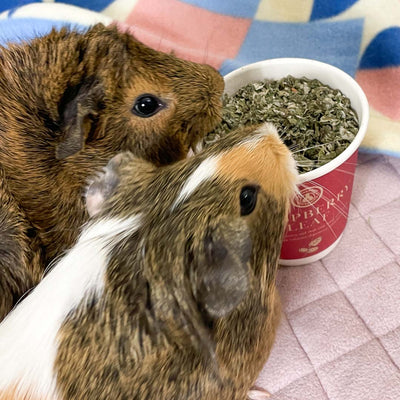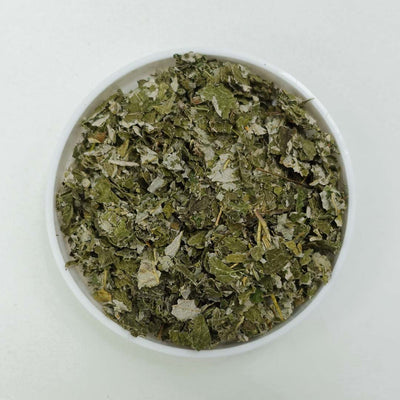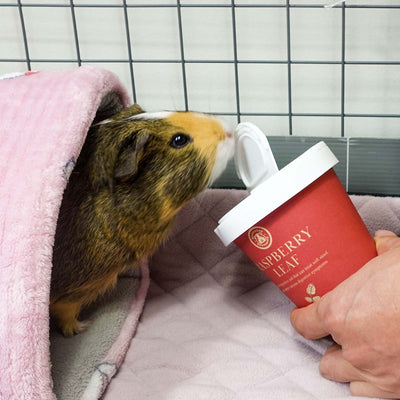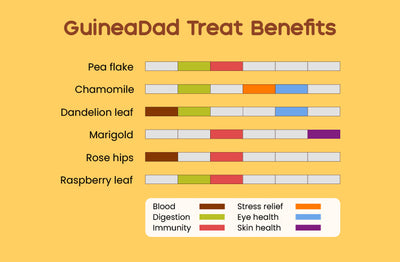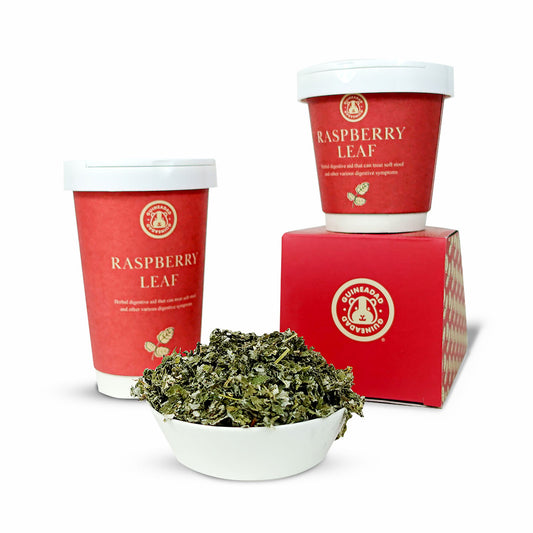As a piggy parent, you may be wondering how calcium is both needed in a guinea pig diet, while also needing to be given to them in a moderate amount. Generally, calcium is a vital mineral for many important functions in the bodies of animals.
If you’re looking for more information on guinea pig diet and guinea pig nutrition, read out posts on how much hay to feed your guinea pig and how much water guinea pigs need. We also have a Vegetable Master List and a Fruits Master List—both have nutritional information on commonly found produce, as well as serving sizes and frequency. These can help you quickly and easily plan out your guinea pigs’ meals.
Even if we piggy parents have heard some horror stories about how too much calcium is bad for our guinea pigs, our furry friends also can’t go without it. It’s important that our guinea pigs get the nutrition that they need from their diet, and it’s important that we know how much to feed them in order to achieve this.
Why is calcium so important for guinea pigs?
Calcium is an important part of guinea pig health because it plays a part in building and maintaining healthy bones and teeth. Guinea pig teeth are constantly growing, and it’s important to keep them strong enough to chomp through all their favorite foods. The heart, muscles and nerves all need calcium in order to function properly. Some studies have shown that calcium can also help prevent high blood pressure.
How much calcium do guinea pigs need?
Some guinea pigs need more calcium than others. For example, calcium is necessary for the formation of the skeletons of guinea pigs when they’re fetuses, as well as aids in female lactation. This means that pregnant and nursing guinea pigs need more calcium than the average piggy in order to accommodate lactation.
Younger guinea pigs have higher calcium requirements as well because they need it for their rapidly growing bodies to strengthen their bones and teeth.
The average guinea pig needs around 8 g of calcium per kg (35.3 oz) of food. This doesn’t mean you should feed it to them all at once! Try to distribute their calcium intake through their meals so they don’t over consume the mineral.
What happens when guinea pigs have too much calcium?
Too much calcium can have negative effects on your guinea pig’s health, and it can become dangerous very quickly. Calcium secretions in guinea pig urine can be normal, but excessive amounts of the deposits are signs that something is wrong.
You should be concerned and consult your veterinarian when you notice there are harder, granular calcium deposits in their urine. These will look like grains of sand, and the bigger the granules are, the more concerning it is, and it can be painful for your guinea pigs to pass these. Blood in their urine is also a bad sign.
A buildup of these calcium deposits form clumps called urinary tract stones, which can form in your guinea pig’s bladder and kidneys. Sometimes these stones are passable when your guinea pig pees, but the larger stones may get stuck and clog up their urethra or bladder. This will make it difficult or impossible for them to urinate. This is dangerous and in some cases fatal, and you should immediately consult your veterinarian. Read this post for more information on urinary tract infections,
What happens if guinea pigs are calcium deficient?
If a guinea pig is calcium deficient, your guinea pig will show signs of dehydration, depressed behavior, or loss of appetite. They’ll also suffer from muscle spasms and convulsions. In some cases, guinea pigs will die without displaying any of these signs.
Being calcium deficient can also lead to weak bones and teeth, which have negative impacts on your guinea pigs health such as the inability to eat comfortably, or reduced physical activity.

How to safely feed your guinea pig calcium
Calcium works in tandem with phosphorus for things like building and maintaining bones. Generally, it’s important when choosing vegetables to include in their diet that you keep in mind the calcium-to phosphorus ratio.
In general, guinea pigs should be eating about a cup of fresh fruits and vegetables a day in addition to the hay and food pellets that they receive—this is to provide a nutritious diet filled with variety. This means your piggy should not be receiving a whole cup of any one fruit or veggie, but a mix of different ones.
The ideal calcium to phosphorus ratio is 1.33:1. To figure out whether your guinea pig’s diet has a good Ca:P ratio, some simple math is required. Make sure you’re doing this math based on equal quantities of all the veggies you plan on feeding your guinea pig. For this example, let’s use 40 grams.
For zucchini, there is a 0.5:1 of Ca:P ratio. We’ll pretend we’re also going to feed them some kale (2.4:1), cucumber (0.7:1), and red bell pepper (0.5:1). Add up the total amount of calcium between all the foods (4.1) and then divide it by the number of foods (4). The number for that calculation is 1.02. Then add up the total amount of phosphorus (4) and divide up by the number of foods (4). The number for that calculation is 1. The Ca:P ratio for this pretend-meal is 1.02:1, which is pretty good!
Yes, this is quite a bit of math, but luckily we did most of that math for you in our Vegetable Master List. It’s a great tool to reference when planning out your guinea pigs’ salads!
Calcium isn’t your guinea pig’s enemy! (Mostly)
Calcium is very much an important mineral to include in your guinea pig’s diet, but it’s important to carefully monitor how much is present in the foods they’re eating, and to portion out and plan accordingly! There are lots of other vitamins and nutrients that guinea pigs need, such vitamin C. Read this post to find out how much vitamin C guinea pigs need!


